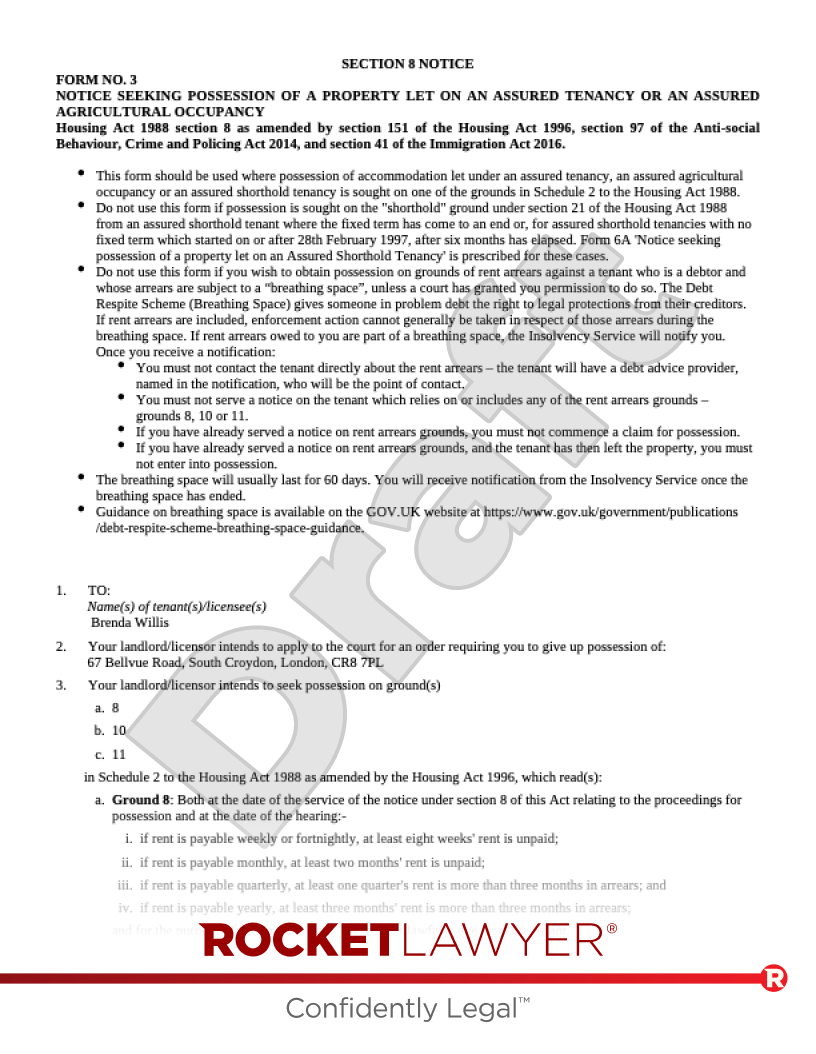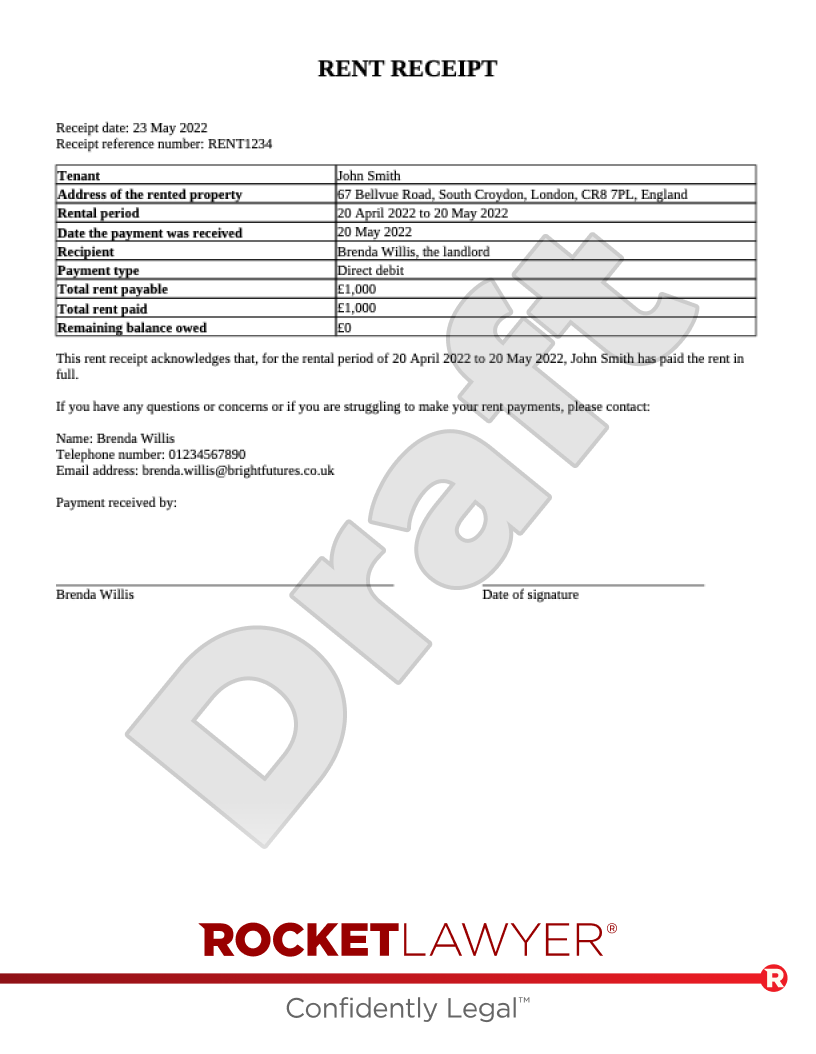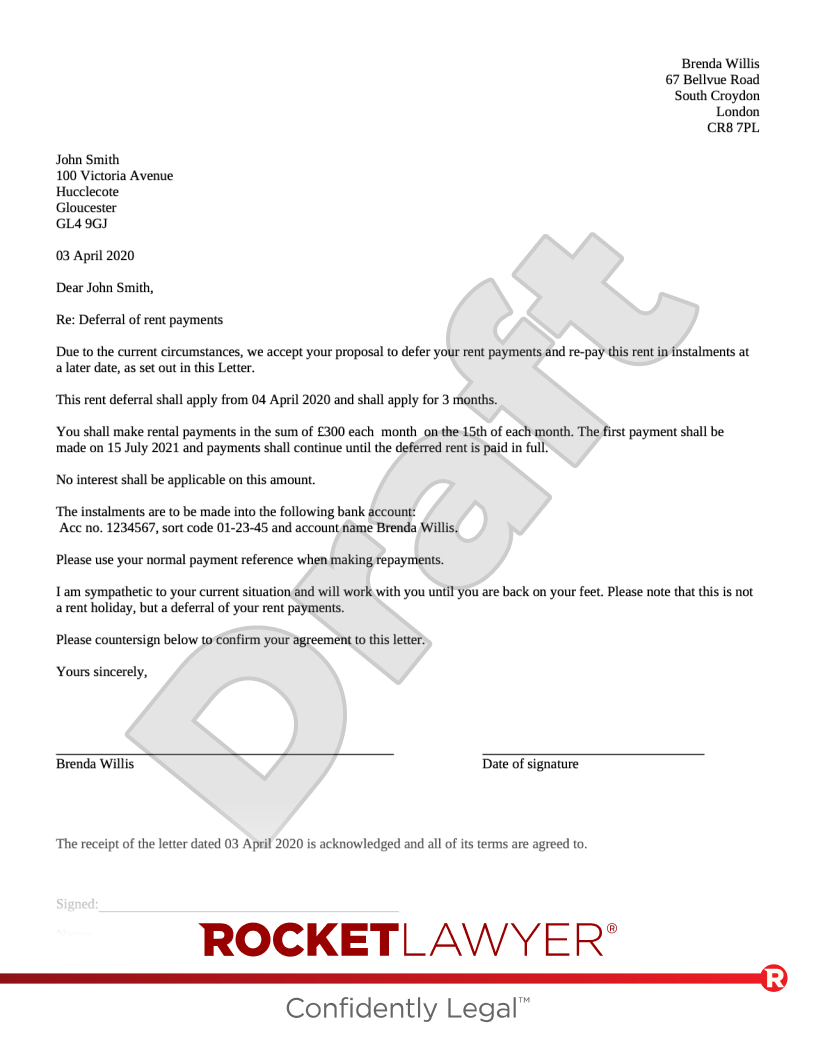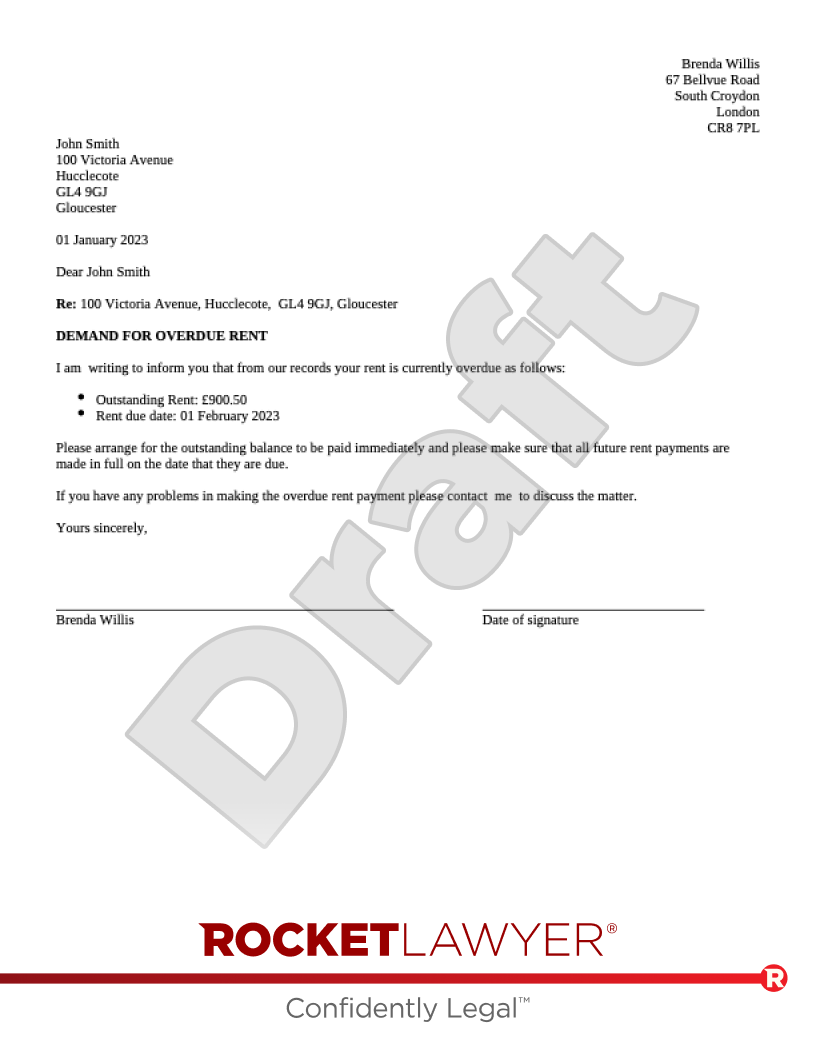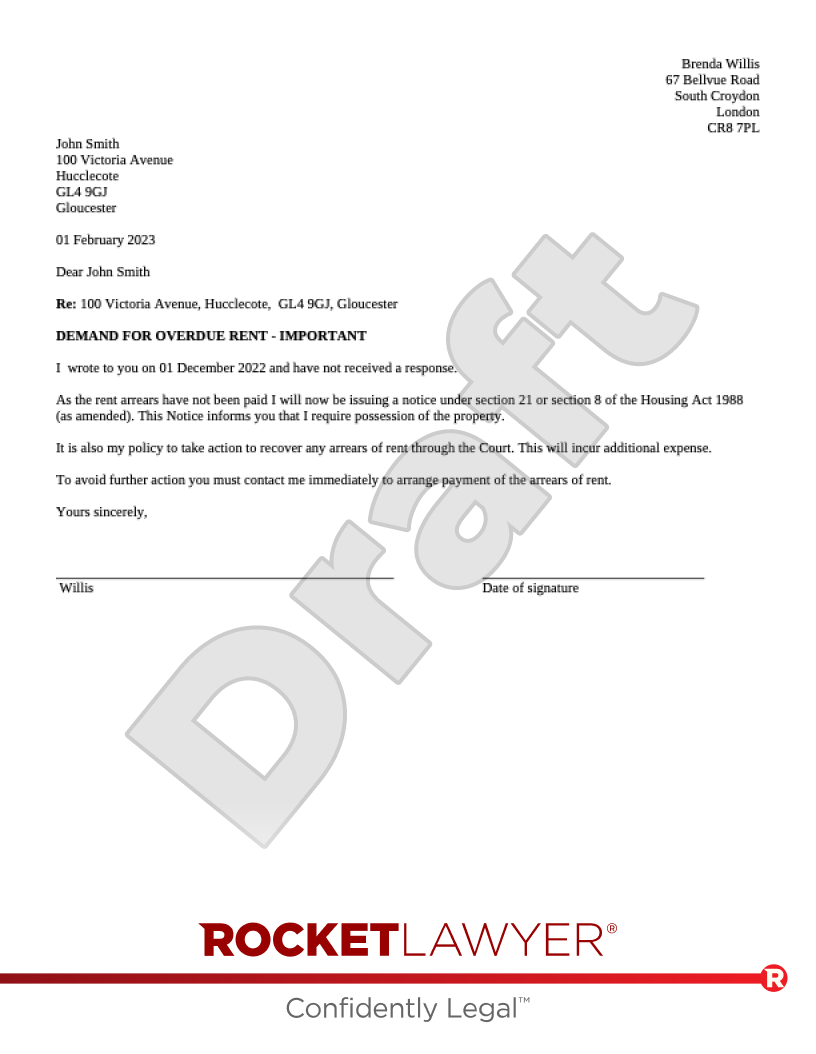There are various ways of repossessing property - including section 21 and section 8 notices in England and section 173 and section 188/182 notices in Wales. Using the correct Eviction Notice template will help to ensure that you take possession of the property safely and legally.
England - section 21 notices
You should use a Section 21 (form 6A) notice to gain possession of a rental property when the property is let under an assured shorthold tenancy (AST).
You can use a section 21 notice for a rolling tenancy when the tenant has failed to pay rent for several months. You can also serve a section 21 notice if you want to end a tenancy on a no-fault basis (eg after the end of a fixed-term tenancy).
England - section 8 notices
You can use a Section 8 notice to evict tenants who are in breach of their tenancy agreements. Section 8 notices can be served during the fixed term if there are specific reasons for doing so. These are also known as 'grounds' for possession. These include situations where tenants have not paid their rent or have caused damage to the property. You can rely on multiple grounds of possession.
Wales - section 173 notices
You should use a Section 173 notice to end a periodic standard contract. You can generally only use a section 173 notice to end a contract after the first 6 months and when you have not broken your responsibilities as a landlord.
Wales - section 188 or 182 notices
You can use a Section 188 notice to end a fixed-term standard contract for serious rent arrears. Similarly, you can use a Section 182 notice to end a periodic standard contract for serious rent arrears. Whether a rent arrears is serious depends on how regularly the rent is paid. For example, for monthly contracts, at least 2 months’ rent must be unpaid. Read Repossessing property in Wales to find out more.
Scotland
In Scotland, tenants can only be evicted if at least one of 18 eviction grounds applies. These Eviction Notices should not be used in Scotland. If you require an Eviction Notice for Scotland, Ask a lawyer.



